This was a moment I’ll never forget: a groom sitting at an Airbnb kitchen table in the quiet morning light, pen moving steadily across the page as he spent a few minutes journaling about what the morning of his wedding day was like. While his bride got ready in another room, he took a few precious minutes to write down everything he was feeling and thinking so it would be forever preserved. Journaling often has that power, to make time stand still.
When couples look back on their elopement day, it’s often these small, quiet moments that become the most cherished memories. While photos capture the visual story, there’s something profoundly special about preserving the invisible parts of your day – your thoughts, feelings, and the subtle details that might otherwise slip away. Whether you’re a lifelong journaler or someone who hasn’t written since high school, the wedding day journaling ideas in this guide will help you find meaningful ways to preserve your wedding day that feels authentic to you – on your own terms and in your own way.
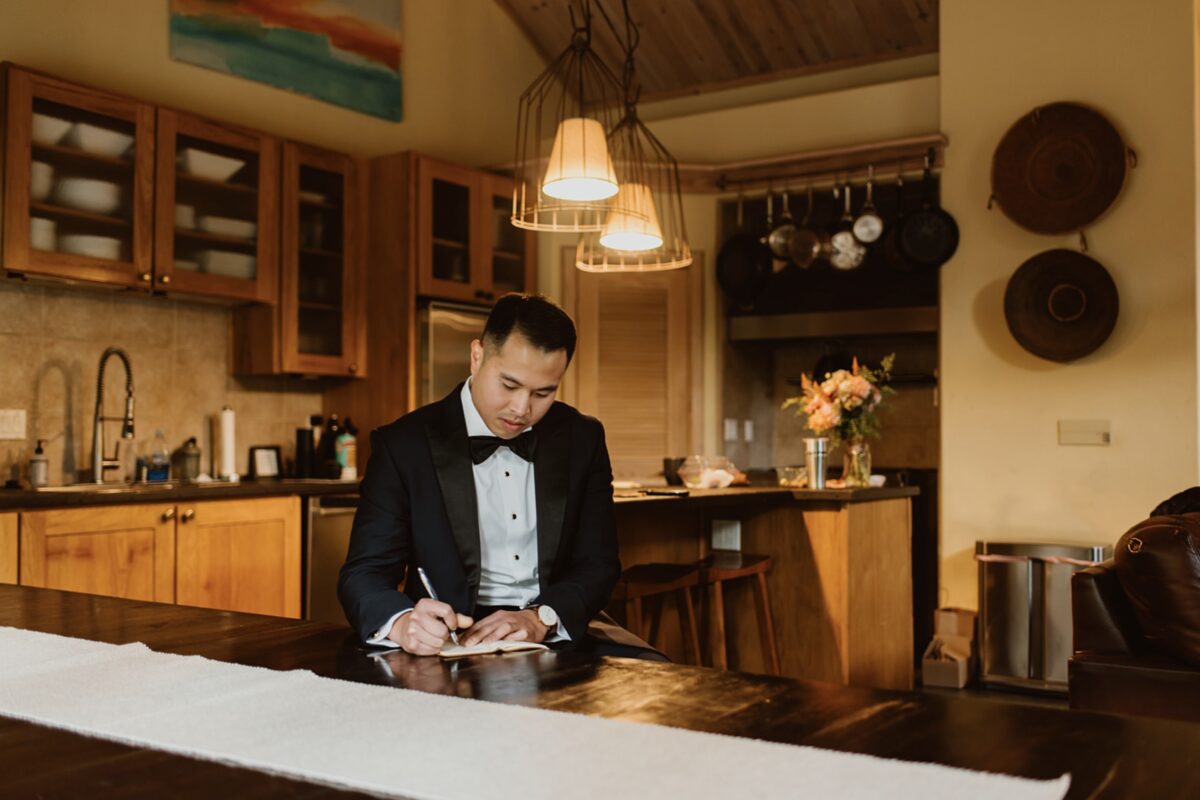
Why These Quiet Moments Matter
The rush of a wedding day – even an intimate elopement – has a way of making time feel both expanded and compressed. In the middle of planning your elopement, it might seem counterintuitive to add another “task” to your day, but here’s the thing: creating space for documentation isn’t about making a to-do list. It’s about giving yourself permission to pause, feel, and preserve those feelings in a way that photos alone can’t capture.
Think about all the elopement day memories you might want to preserve, the small details that make your experience unique: the way your hands trembled slightly while writing your vows, that specific thought that crossed your mind when you first woke up, the unexpected moment that made you both laugh. Our brains tend to hold onto memories more strongly when we engage multiple senses and take time to process them. When you document these wedding moments – whether through journaling, speaking, or another creative method – you’re essentially creating anchors for your memories, ones that will help you revisit not just what happened, but how it felt.
Building Documentation Into Your Day
The key to meaningful elopement documentation is finding natural moments within your wedding day timeline that don’t disrupt the flow of your celebration. But remember: there’s no “right” schedule for processing and documenting your experience! Some couples prefer to spread small moments throughout their day, while others dedicate specific time blocks. What matters is that it feels natural and authentic to you.
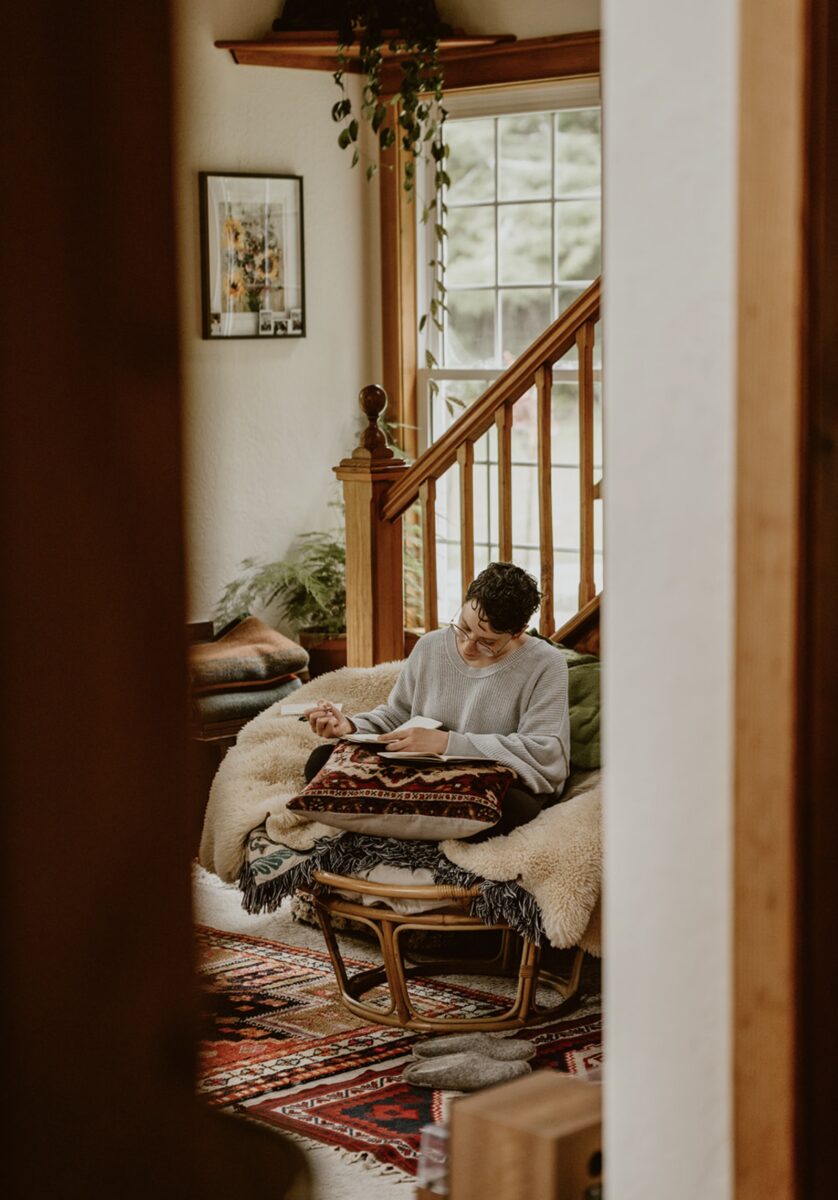
The Beginning of Your Elopement Day
First thing in the morning often provides a great window for documenting your experience – that liminal space between sleep and the day’s excitement where everything feels possible. Whether you’re an early riser or not, try to carve out even 15-20 minutes of quiet time before the day’s activities and excitement fully kick off.
Getting ready time offers another organic opportunity. While your partner is dressing or during hair and makeup, you might find pockets of stillness perfect for reflection. There’s something especially powerful about documenting your thoughts while preparing to make this lifelong commitment.
Before and After Your Ceremony
Both before and after your ceremony are another few beautiful moments to pause. Taking even five or ten minutes to process and capture those raw feelings can be incredibly meaningful. As a real-world example, my husband and I took both these routes: I scripted a 10-minute guided meditation that our officiant privately walked us through right before our ceremony started, and we took five minutes to ourselves immediately after our ceremony before rejoining our guests. I’m so glad we did both.
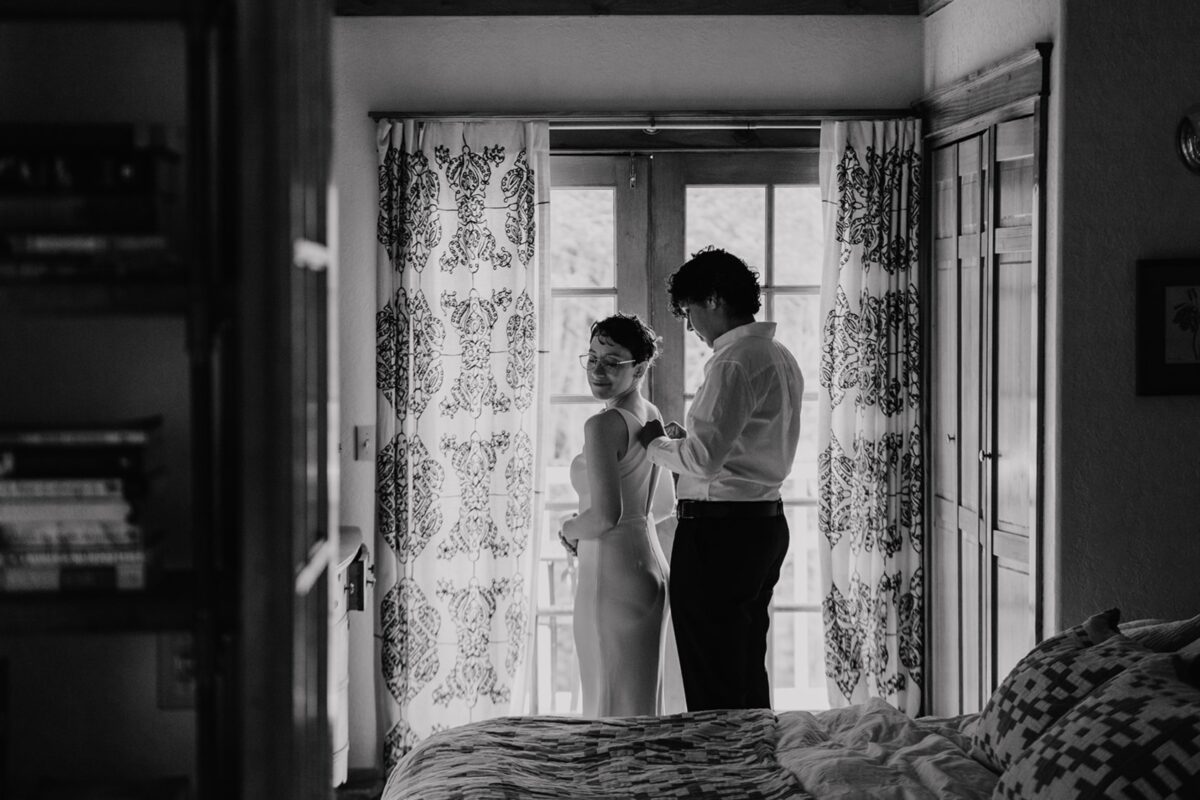
Journaling Prompts to Capture Your Wedding Day
Sometimes the hardest part of wedding day journaling is simply knowing where to begin. These elopement writing prompts will help you capture those precious moments, especially if it’s been a long time since you journaled, or are new to the practice. Here are some prompts you can think about including at different moments throughout your day:
Morning Reflections
Write about what you’re feeling right now – the physical sensations, your emotions, the thoughts drifting through your mind. What’s the first thing you thought about when you woke up today? What are you most looking forward to in the hours ahead?
Pre-Ceremony Moments
Describe your partner – not just how they look, but who they are. What made you realize they were the one? What about your relationship fills you with the most joy? What promises do you want to keep in your heart beyond your formal vows?
After Your Ceremony
Capture the details you want to remember forever – the way the light looked, the smell in the air, the sound of your partner’s voice. What surprised you about the ceremony? What moment felt the most real? How does being married feel different than you expected?
Remember, these prompts are just starting points. Feel free to follow your thoughts wherever they lead! Sometimes the most meaningful reflections come from simply putting pen to paper and letting your mind wander.
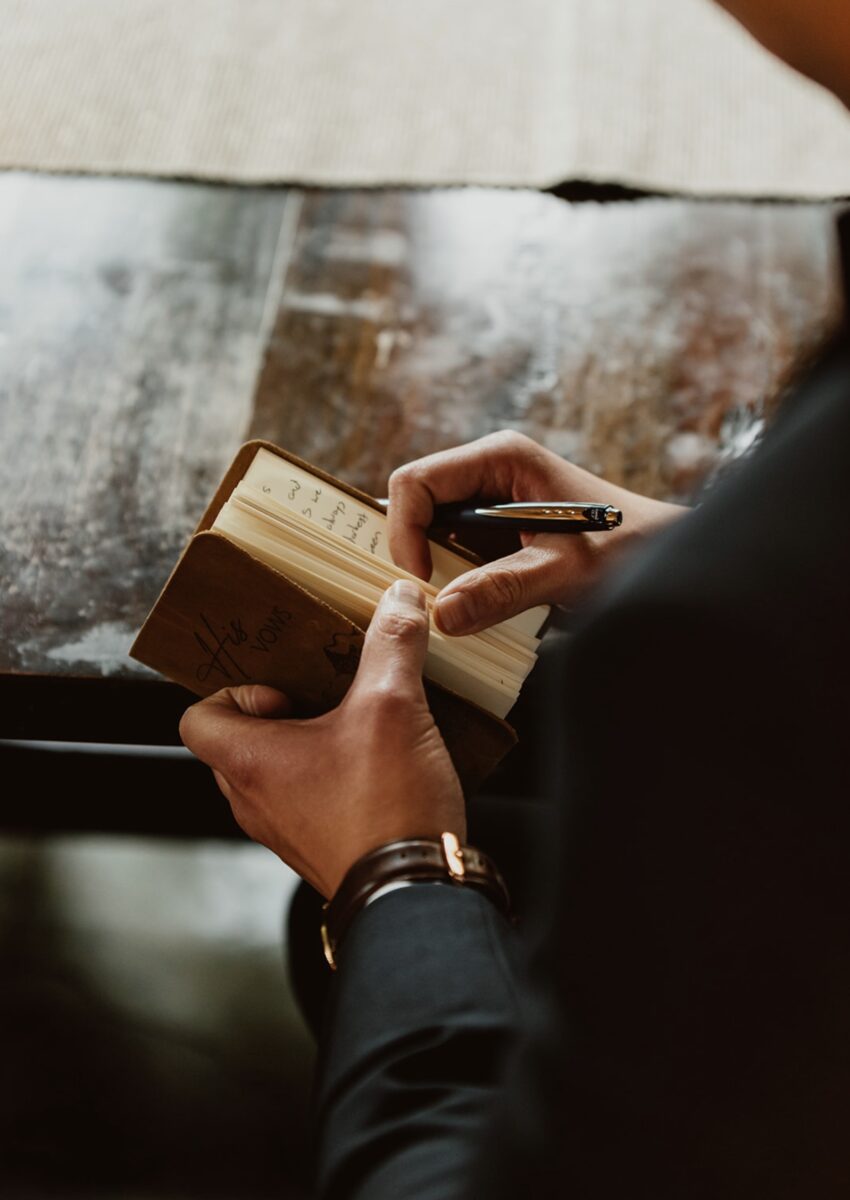
Ways to Document Beyond Journaling
Not everyone connects with traditional journaling, and that’s okay! There are countless creative ways to document and preserve your elopement day feelings. Writing is just one tool in a much larger documentation toolbox.
Audio Documentation
Voice memos offer a beautifully personal way to capture your elopement day thoughts and create lasting wedding memories. There’s something powerful about hearing your own voice, describing how you feel in real-time. You might record little audio snapshots throughout the day – the morning birds outside your window, the sound of your partner laughing, or your immediate reactions after the ceremony. These audio pieces create a rich soundscape of your day that you can revisit for years to come.
Individual or Joint Letter-Writing
Letters to each other offer another meaningful approach. Unlike vows, which are often on the shorter side and shared with guests, these can be deeply personal messages meant for your partner’s eyes only. You might write about your hopes for your future together, share a favorite memory, or express feelings that feel too intimate for the ceremony.
You could also choose to write letters individually to each other or write a joint shared letter to both of yourselves in the future about what you want to remember from your collective wedding day experience. If they’re written ahead of time, some couples choose to exchange these letters on their wedding day, while others save them for their first (or 2nd, 3rd, 5th, 10th even!) anniversary.
Visual Documentation in a Time Capsule
For a unique elopement keepsake, consider creating a wedding day time capsule filled with meaningful objects: the pen you used to sign your marriage license, pressed flowers from your bouquet, a handwritten note from your first look, polaroid photos capturing candid moments. These tangible items, paired with written notes about why you chose to preserve them, become powerful memory anchors. You could store these in a box (time capsule style) or compile the pieces into a scrapbook or similar.
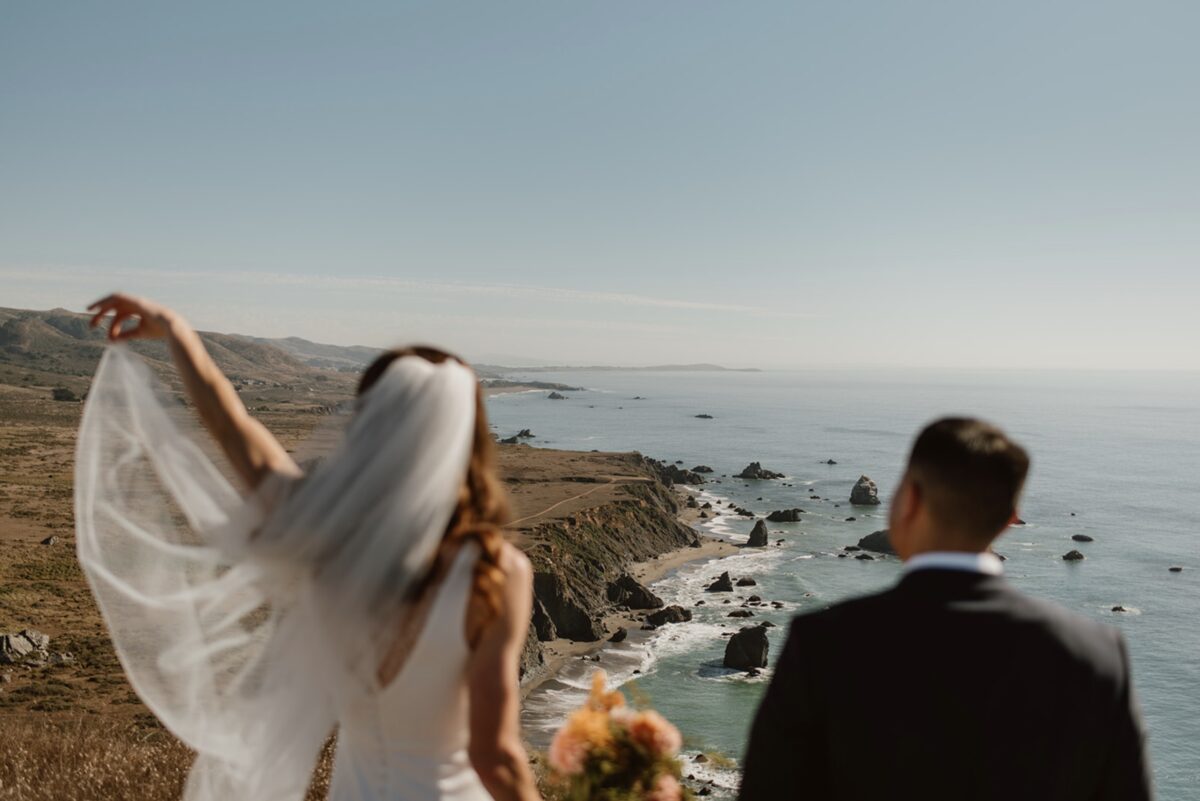
Making It Feel Natural
The most meaningful documentation happens when it feels authentic to who you are as a couple. If you’re someone who’s kept a journal since childhood, lean into that practice. If you’ve never been much of a writer, don’t feel pressured to suddenly become one on your wedding day.
The key is finding what resonates with you. Maybe you’re more comfortable talking than writing – in that case, voice memos might feel more natural. Perhaps you express yourself best through art – consider bringing a small sketchbook to capture moments visually. Or maybe you and your partner love making lists together – you could each create “Top 10 Feelings Right Now” lists at different points throughout the day.
If you feel awkward about documenting your feelings (or you think your partner might), remember that no one else ever needs to see what you create. These pieces aren’t about crafting flawless poetry or recording profound insights – they’re about capturing your real moments and genuine emotions! Sometimes the most treasured pieces of documentation are the messy, imperfect ones that truly reflect how you were feeling on your elopement day.
Think of documentation as creating gifts for your future selves. Years from now, you’ll be grateful for these glimpses into one of the most significant days of your lives, no matter how you choose to preserve them.
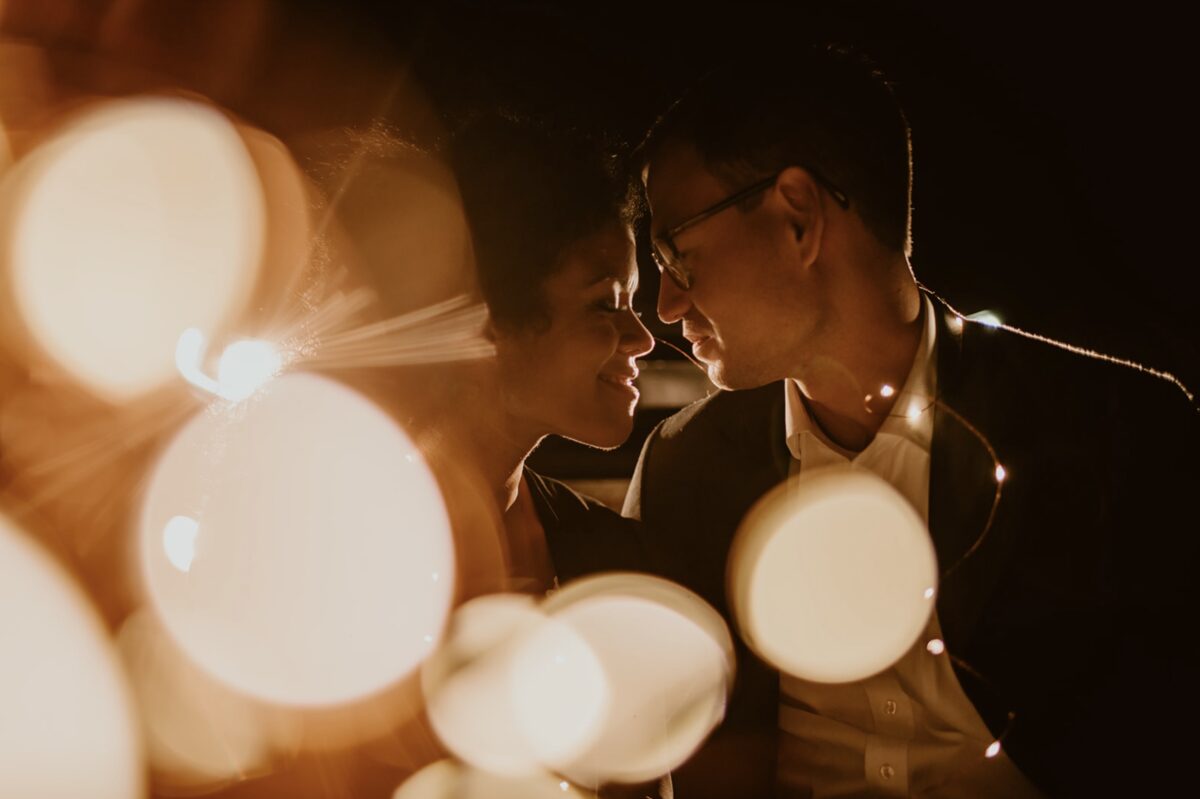
Making Your Memories Last
When I think back to that groom journaling at the kitchen table, I can only imagine how valuable those notes will be for him as time passes. That ‘time-traveling machine’ will always be able to take him back to what it was like experiencing that moment and that day – and so it will be for you if you take any of these playbook strategies!
Your elopement day will be filled with big moments and small ones, with grand gestures and quiet pauses. While the photographs we create together will tell the visual story of your day, these personal documents – whether written, spoken, or collected – will preserve the invisible parts: what’s going on in your heart and mind.
Whether you choose to write letters, record voice memos, or sketch the scene you’re in, I encourage you to find ways to document your day that feel true to who you are. If you’re dreaming about your own elopement day and want to chat about ways to make it meaningful (including how to capture all these special moments), drop me a note. I’d love to hear what you’re envisioning for your celebration!